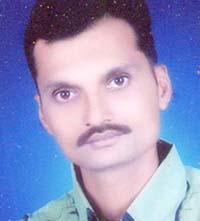On 19 June 2015, Sandeep Kothari and his friend were driving to Umri village on a motorbike when they were rammed by three men in a car. Kothari was beaten and then abducted while his friend managed to escape. The attackers strangled him before dumping him next to a railway track and burning him alive. After his friend reported the incident to the police his body was found on 20 June. He is survived by his parents, sister and two brothers.
Kothari had been a journalist since 2005 and worked for various Hindi language newspapers including Nai Duniya, Hari Bhoomi and Deshbandhu. He specialised in reporting on illegal mining operations and land grabs in Katangi and Tirodi, making frequent use of the Right to Information (RTI) act to acquire information about his subjects.
Kothari’s sister Sandhya told Asian News International that she had pleaded with him to end his reporting as she feared for his life. He had allegedly received threats in the past from groups involved in illegal sand mining operations. He had also been the target of various criminal cases in retribution for his stories. Sand mining is a lucrative business but can cause serious environmental damage, the companies involved often engage in illegal land grabs to access new sites. The ‘Sand Mafia’ in India has been linked to the deaths of dozens of journalists and activists.
Three arrests were made in connection with the murder however no convictions have been made. The International Federation of Journalists and UNESCO called for a thorough and transparent investigation of the killing.
